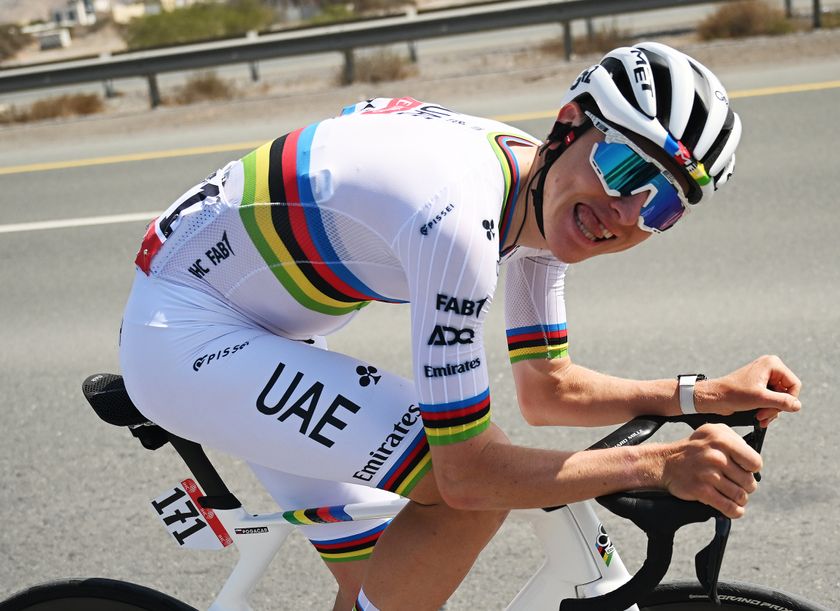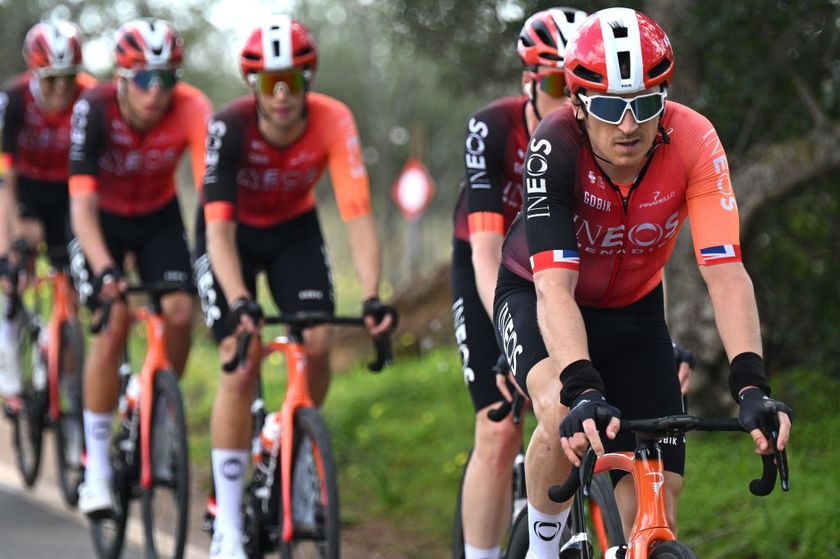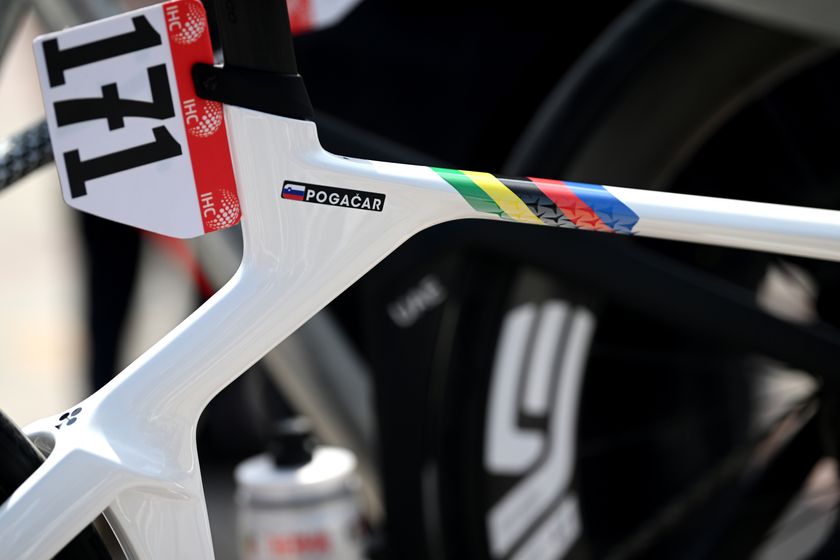Chaos at Cascade costs Bassett chance at stage win
The UCI men's and women's fields converge 500 metres from the finish





Sometimes a plan comes together, and sometimes it goes completely awry. The finish of the final stage at the Cascade Cycling Classic Sunday was definitely the latter as the men's field caught the lead group of the women's field at the bottom of the 500-metre uphill sprint to the finish.
While the women's podium finishers made it cleanly to the line, Silber Pro Cycling's Stephen Bassett, who won the same stage last year and had a small gap again with 200 metres to go, crashed into one of the women riders and hit the deck, ending his bid for the win. The rider he ran into, Whitney Allison of Colavita-Bianchi, also went down and lost her chance to move up the general classification.
Team USA's Alex Howes eventually took the stage win, crossing the line just behind Katie Antonneau (Cylance), who finished fourth in the women's race, 10 seconds off the winner's time.
An obviously disappointed Bassett said the Awbrey Butte circuit is a special race for him, and he really wanted to deliver the win for himself and for his team.
"I'm just pretty guttered to have this situation," he told Cyclingnews. "It's not in what I thought was possible."
The men's field was told they were approaching the back of the women's caravan about 5km from the finish, and officials tried to separate the fields on opposite sides of a median dividing the road. That attempt wasn't fruitful, however, as the fields came together when they made the turn onto the finishing climb.
"They still hadn't decided what they wanted to do about competing races on the course," Bassett said. "In my opinion, you have to let the faster race go and stop the other one, but obviously they decided they were just gonna – I mean it's a tough situation, but I think they needed to be a little more active in the call, and so really they just didn't take any action."
Get The Leadout Newsletter
The latest race content, interviews, features, reviews and expert buying guides, direct to your inbox!
Bassett said he thought he was clear of all the women when he started his sprint.
"We were passing them, and we went past comm 1, and I thought we were through them and started sprinting, but apparently there were more," he said.
"I crashed into one of the women, which was my fault; I should have had my head up," he said. "But 200 metres left to go in the race, there's a lot of adrenaline. I feel like I had the win, and I was trying to secure it. I just think it's a super unfortunate situation. They needed to be more proactive."
UCI Jury President Bruce Brasaemle said neutralising one of the fields was a tough call, because both were UCI races.
"You just try to manage it the best you can, and with the two fields coming together, obviously caused some problems with riders trying to finish for both fields," Brasaemle said. "It was a little chaotic, but at the end of the day we still had winners and everybody walked away.
"Keep in mind that both races are UCI races, so it's difficult to make a decision as to which UCI is a higher priority than the other," Brasaemle said. "That's why we can't necessarily neutralise one over the other."
Sunday wasn't the first time that the lead men have caught the women's field at the Awbrey Butte Circuit Race. In 2011, Bobby Sweeting was in a breakaway with Ian Boswell, George Bennett, Shem Rogers, Danny Summerhill and Lachlan Morton approaching the finish. The breakaway had to race through the women's caravan in the closing kilometres to a different, flatter finish several kilometres farther away. Sweeting eventually took an inauspicious win among the women's group.
Bassett's Silber team director, Gord Fraser, was livid in the team parking area after the race.
"They've had past experiences here, so they should a least have a better battle plan for this type of situation that could occur," Fraser told Cyclingnews. "I'm just shaking my head, and they're just shrugging their shoulders like it's not their fault, and it completely is.
"[Bassett] had the win in the bag and he's got all these anchors up in front of him from the other categories," Fraser said. "It's inexcusable. This is a UCI race. I mean, c'mon. We invest a lot of money to come to Cascade, we haven't come in Silber's existence, but now it's UCI and this is the kind of organisation we get?"
The men ripped through their 130km stage averaging 45.28 k/ph, just over the fastest time organisers had anticipated in the technical guide. Had the men ridden just a bit slower, there could have been no problem. But the higher-than-anticipated pace led to chaos in the final half kilometre.
"We were warned that the women were on Archie Briggs," Fraser said. "OK, what are we supposed to do about it? It's up to them, and once again the USA Cycling officials were totally incompetent. They should have had that finish cleared or each category to do their own finish, what have you. I know it's a difficult situation, but they handled it very poorly.
"It's a big expense to come to this race, and it's not worth the expense when we get service like this," Fraser said. "I know [race director] Chad [Sperry] and everybody here is on the fence about having this race again, but honestly, if this is the type of product we get, we're never coming back."
Growing up in Missoula, Montana, Pat competed in his first bike race in 1985 at Flathead Lake. He studied English and journalism at the University of Oregon and has covered North American cycling extensively since 2009, as well as racing and teams in Europe and South America. Pat currently lives in the US outside of Portland, Oregon, with his imaginary dog Rusty.
Most Popular








